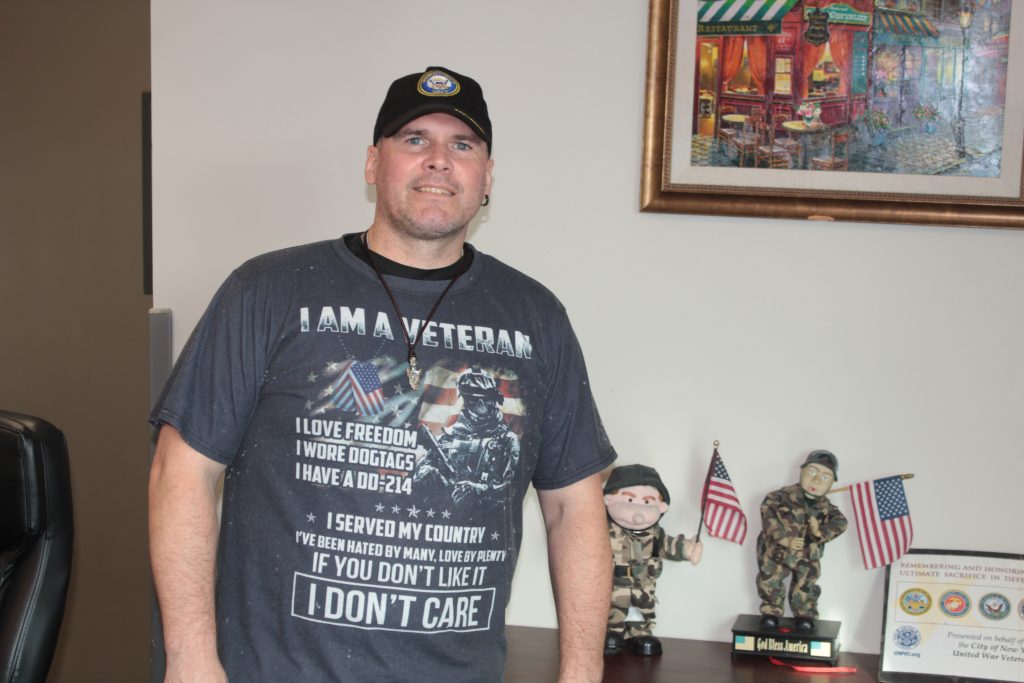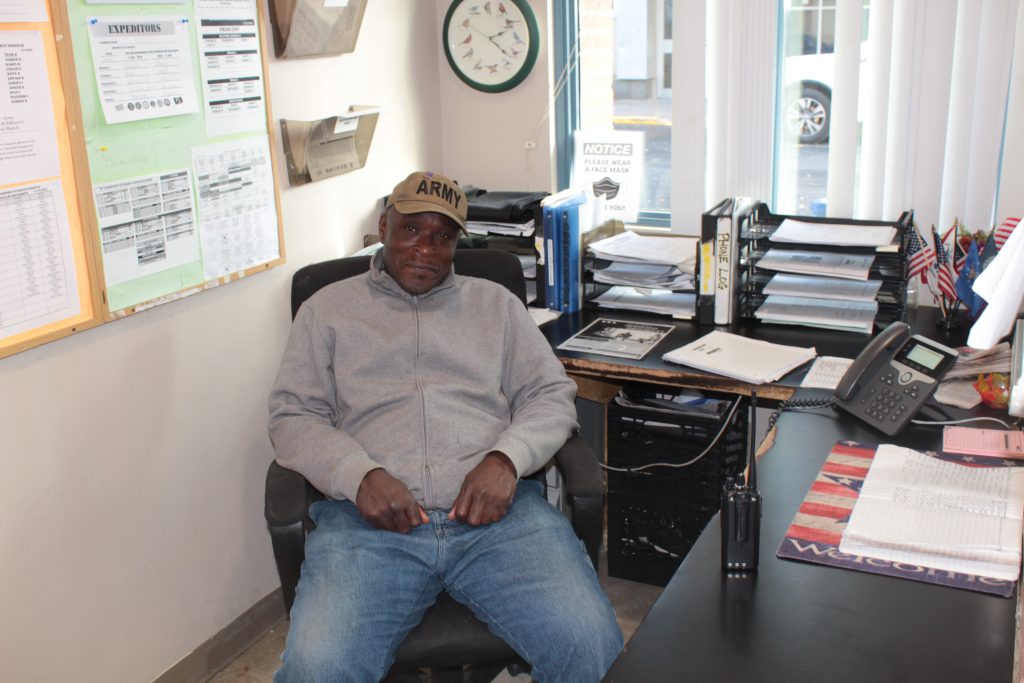
Program Offers Hope, Jobs, and Healing for Veterans
By MOHAMED FARGHALY
mfarghaly@queensledger.com
For veterans returning from service, the battle often doesn’t end on the battlefield. Many struggle with addiction, post-traumatic stress, and the challenges of reintegrating into civilian life. In Richmond Hill, the Ed Thompson Veterans Program at Samaritan Daytop Village offers a structured sanctuary where veterans can confront those struggles, rebuild their lives, and find community.
The 50-bed residential facility serves male veterans, many of whom face co-occurring disorders such as PTSD, depression, anxiety, and long-term substance use. “We treat the whole vet,” said Roger D. Walker, program director. “It’s not just substance use disorder. We work on mental health, physical health—everything—to get them stabilized. Once they’re stabilized, we engage them in talk therapy and help them prepare for life after the program.”
The program also helps veterans with practical skills like resume building, vocational training, and access to housing and employment services. “They get a chance to work for a while, save some money in a supportive environment, and then look for a place to live, which is, of course, the hardest part,” Walker said.

Andrew, 42, grew up in a large Long Island family with deep military roots. His father served in the Korean War, and his uncles served in World War II. “The military was a big part of my family,” he said. “My brothers, they were in the Marines. That’s what led me to follow the family footsteps.”
He enlisted in 1998 but struggled with alcohol and drug use, resulting in a general discharge after less than a year. “When I got out, I felt ashamed of myself,” Andrew said. “My father got me a job working as a welder. Here I am, out of the military, 19 years old, making $23 an hour. I almost felt rich, but I started drinking too much, going to bars, and I started getting high again. The bad thing is, when I got high, I got arrested, and I hurt somebody really bad, and I went to prison for a long time.”
An overdose in June 2023 became a turning point. “I woke up on the floor in a motel room, and I just said, ‘I can’t do this,’” he said. After a short detox program, he was recommended to Ed Thompson. “I really wish I could remember the employee’s name, but she worked at NUMC. I think I owe her my life. She convinced me to go to Ed Thompson.”
Now, nearly two years later, Andrew has engaged in programs including cognitive behavioral therapy, relapse prevention, “Thinking for a Change,” and seeking safety. “In these classes, you get really close with people. You start speaking about your past, and they start telling you their story. They give you different tools to use when you’re on the street,” he said.
“The first thing is, it gives you a safe environment,” he added. “Being around fellow veterans who have military backgrounds, we don’t play none of that here. If I smell something—even think it’s drugs—I tell, and it’s not just me. Everybody in this building wants it as safe as possible to continue our sobriety.” Andrew has also secured a job starting December 1. “I’ve got a job lined up while I was here. It’s kind of cool. I feel ready.”

Gerald Evans, 64, grew up in Escambia County on the Florida-Alabama border during the 1960s. “It was really backwards. I grew up during the time when Martin Luther King was marching, and I encountered a lot of psychological trauma when I was a kid, like Ku Klux Klan shooting at me, going from all-black school to all-white school,” he said. “It’s been hard for me to overcome that.”
Evans joined the Army Reserve in 1977 to build a purposeful life. “I knew that the world could be a better place than where I was born,” he said. “My mother said, ‘What are you gonna do with your life?’ And that’s when I said, ‘Well, Mama, I’m gonna join the service.’ I wanted to show that I was a person of substance in this world, and I’m willing to give my life for this country, just like everyone else.”
He trained at Fort Jackson, South Carolina, and Fort Lee, Virginia, where he faced intense situations, including a live grenade accident. “One of the trainees dropped a live grenade, and he picked it up and tossed it, and it kind of messed his hand up. We all had to jump out of fear. I still see it to this day,” he said. Evans later developed tinnitus, anxiety, and post-traumatic stress, which led him to self-medicate with crack cocaine after leaving service.
Evans first learned about Ed Thompson while incarcerated. “I was inside for a while. We have a great lady who comes in advocating for veterans with drug problems. I was one of the ones interested, and I reached out. It took six months before I got in, but they understood my situation,” he said.

Now four months into the program, Evans participates in core groups including “Thinking for a Change,” relapse prevention, seeking safety, anger management, and life skills. “It has helped me understand where I’m at, what I need to do for my life, how I need to go about fixing it,” he said. “It taught me integrity. You learn to be honest with yourself, admit you’re powerless, and start planning real goals.” Evans also volunteers at the facility, helping run the house and assist other veterans.
Both Andrew and Evans stress the importance of camaraderie within the program. “I feel at home. I feel comfortable with them. We all have similar problems, PTSD or other trauma, and we help each other,” Evans said. Andrew agreed, “Being around people who get it—that’s huge.”
For both veterans, the Ed Thompson program offers more than treatment, it offers stability, purpose, and a path forward.


